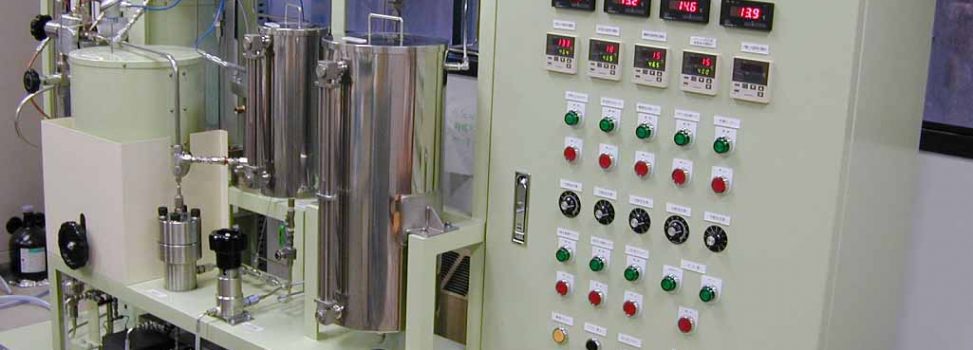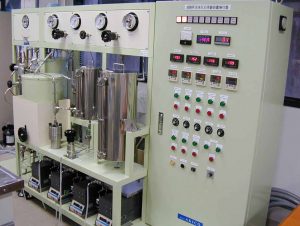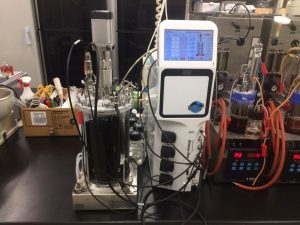Bioethanol is used for gasoline vehicles. Currently, bioethanol is produced from edible biomass such as corn and syrup. In such a case, bioethanol is not environmentally friendly, because the cultivation of edible crops requires a large amount of fertilizer and it is an energy-consuming process. We should produce bioethanol from inedible biomass but it is technologically difficult and has not been commercialized yet.
Given such situations, our laboratory is developing a bioethanol production process from lignocellulosics with acetic acid fermentation. The conventional alcoholic fermentation has low ethanol yield because yeast emits CO2 as a byproduct, which causes low carbon efficiency. On the other hand, the acetic acid fermentation does not emit CO2, so that the ethanol yield is higher than the conventional alcoholic fermentation. The acetic acid obtained can be converted into bioethanol through catalytic hydrogenolysis.
The following photographs are a semi-flow hot-compressed water treatment system for the decomposition of wood into saccharides, and a fermenter to produce acetic acid from the saccharides obtained.
Semi-flow hot-compressed water treatment system
Acetic acid fermentation system



